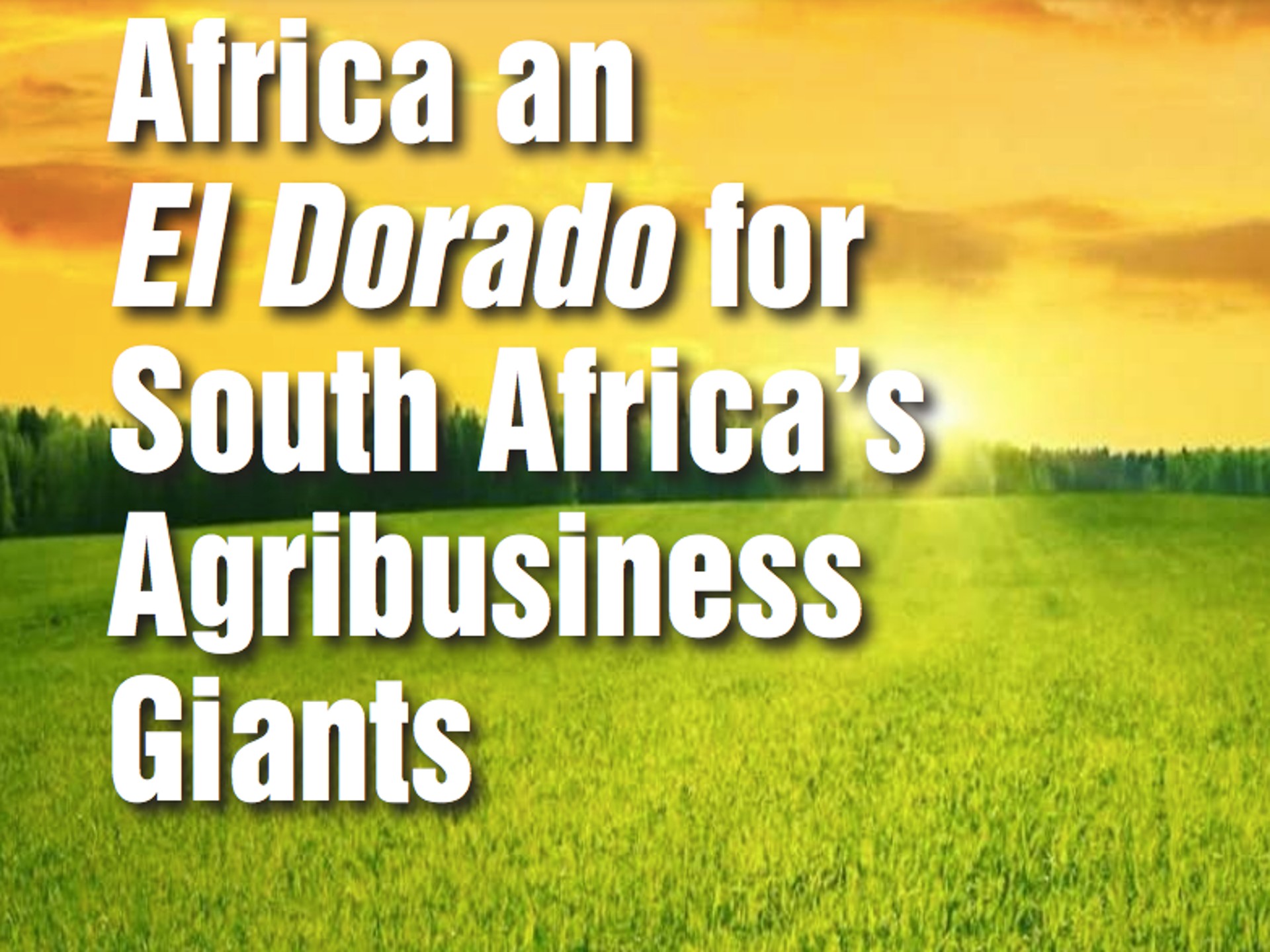Latest Resources

4 May 2015
Gates and Monsanto’s Water Efficient Maize for Africa (WEMA) Project
In this report, the ACB interrogates the Gates Foundation and Monsanto’s Water Efficient Maize for Africa (WEMA) project and exposes it to be nothing more than corporate ‘green washing’, designed to ensnare small holder farmers into adopting hybrid and GM maize in order to benefit seed and agro-chemical companies.

17 March 2015
Nuanced rhetoric and the path to poverty: AGRA, small-scale farmers, and seed and soil fertility ...
The report indicates a well-coordinated effort by selected states especially the US and in the EU, philanthropic institutions like AGRA, multilateral institutions like the World Bank, donors and multinational corporations (MNCs) including Yara, Monsanto and Pioneer to construct a Green Revolution that aims to produce a layer of commercial surplus producers. This is an explicit […]

15 February 2015
Manipulate and Mislead: How GMOs Are Infiltrating Africa
The most persistent myth about genetically modified organisms (GMOs) is that they are necessary to feed a growing global population. Highly effective marketing campaigns have drilled it into our heads that GMOs will produce more food on less land in an environmentally friendly manner. The mantra has been repeated so often that it is considered […]

15 December 2014
ACB wishes everyone a happy and peaceful 2015
ACB wishes everyone a happy and peaceful 2015!

6 October 2014
Running to Stand Still: Small-Scale Farmers and the Green Revolution in Malawi
According to ACB lead researcher, Dr Stephen Greenberg, “small-scale farmers are using shockingly high levels of synthetic fertilisers at great financial costs to themselves and the public purse. Rising soil infertility is a feature of farming systems reliant on synthetic fertiliser. We found that farmers are increasingly adopting hybrid maize seed, encouraged by government subsidies […]

15 September 2014
The political economy of Africa’s burgeoning chemical fertiliser rush
The African Centre for Biosafety has today released an in-depth report, The Political Economy of Africa’s burgeoning chemical fertiliser rush, which looks at the role of fertiliser in the Green Revolution push in Africa, some of the key present and future fertiliser trends on the continent and the major players involved in this. The value […]

2 September 2014
Africa an El Dorado for South Africa’s Agribusiness Giants
South African agribusinesses are aggressively expanding into Africa in search of profits from a relatively untapped consumer market with rising income levels and to escape the country’s negative economic conditions. This paper traces this expansion and outlines the implications for Africa’s market structure, food security and food sovereignty movements, as well as exploring the potential […]

16 June 2014
Slavishly following UPOV 1991: A critique of Mozambique’s PVP law
In this report, the ACB provides a critique of the Mozambique PVP law and concludes that the government of Mozambique has turned a blind eye to its small-scale farmers and their seed and farming systems. The provisions dealing with the exclusive rights granted to plant breeders and the exceptions to those rights render the centuries-old […]

20 May 2014
Below the belt, below the breadline – South Africa’s inequitable and GM contaminated ...
The African Centre for Biosafety (ACB) has today brought into sharp focus the white bread industry in South Africa with the release of its new report “GM Contamination, Cartels and Collusion in South Africa’s Bread Industry.’ The report shows that the white bread tested contains high levels of Monsanto’s genetically modified (GM) soya in the […]

18 November 2013
Giving With One Hand and Taking With Two: A Critique of AGRA’s African Agriculture Status R...
The African Centre for Biosafety (ACB) has released a comprehensive critique of a report published by the African Alliance for a Green Revolution in Africa (AGRA). The analysis of AGRA’s African Agriculture Status Report 2013 reveals that AGRA’s vision is premised on Public-Private Partnerships in which African governments will shoulder the cost and burden of […]
